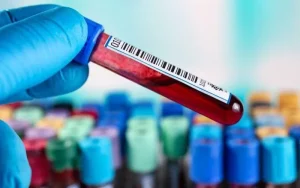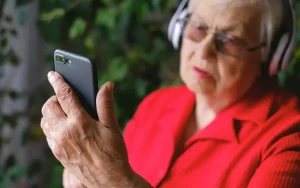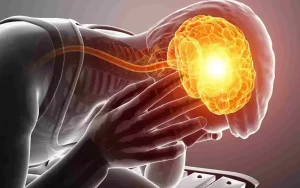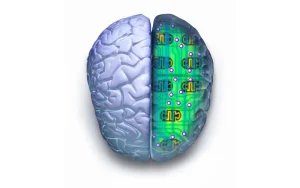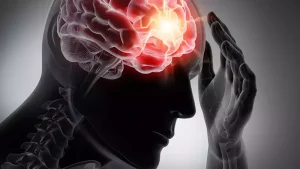MAIN HIGHLIGHTS
- A significant number of individuals grappling with depression find little solace in conventional psychotherapy or current medications.
- Recent research indicates that psilocybin exhibits considerable promise in alleviating depression.
- The notable safety profile and effectiveness of psilocybin imply its potential as a potent tool for depression treatment.
A pressing demand exists for efficacious treatments for the 21 million American adults (8 percent) affected by depression annually. The figures are even more pronounced for females (exceeding 10 percent) and individuals aged 18 to 25 (over 18 percent). Alongside the immense personal anguish it induces, depression frequently precipitates significant upheavals in one’s life, including absenteeism from work, strained interpersonal connections, and the onset of substance use disorders.
Established treatments for depression encompass psychotherapy and medications like fluoxetine (Prozac). Nevertheless, even the most rigorously tested drugs and therapeutic approaches yield positive outcomes for only around 60 percent of recipients. Moreover, numerous individuals undergoing current medication endure unwelcome side effects, including headaches, emotional numbing, and difficulties in achieving orgasm, often necessitating prolonged prescription.
Given this backdrop, there has been considerable excitement regarding the potential of psychedelics in addressing depression. A recent study published in JAMA, a preeminent medical journal in the United States, revealed that psilocybin (the active component in commonly referred to “magic mushrooms”) could offer swift relief.
A substantial team of researchers spanning 11 sites in the US enlisted 104 participants with mild to moderate depression. Those with a history of psychosis or mania, significant ongoing substance use issues, and active suicidal tendencies were excluded. Individuals taking antidepressant medication gradually tapered off their prescriptions in preparation for the treatment phase of the study.
The participants were assigned randomly to one of two groups: 51 individuals received a synthetic version of psilocybin, while the remaining 53 were given niacin, the control substance. This control condition was implemented to ascertain whether psilocybin produced an effect beyond the placebo response, which is known to be significant in the treatment of depression. Niacin was selected for its ability to induce an acute physiological reaction (flushing), making it more challenging for participants to discern which treatment they had received.
Trained facilitators supervised all participants during a 7- to 10-hour session, administering either niacin or psilocybin. Both participants and facilitators were unaware of the treatment condition, ensuring that the actual treatment effect could be isolated from any preconceived expectations. Additionally, the clinicians responsible for evaluating participants’ depression symptoms and other variables were also kept blind to the treatment condition.
Does Psilocybin Demonstrate Effectiveness?
The psilocybin-administered group exhibited a significantly greater reduction in depression symptoms compared to the control group, both at the 8-day post-treatment mark — with a 50% symptom reduction as opposed to 17% in the niacin group — and at the 6-week follow-up, registering at 54% versus 19%. Intriguingly, the majority of this improvement was observed by Day 8.
Individuals who received psilocybin also reported a substantially greater enhancement in their disability scores throughout the follow-up period — 61% versus 25% — demonstrating that the greater alleviation of symptoms correlated with improved functioning.
A higher proportion of participants in the psilocybin group encountered treatment-related adverse events (82%) in comparison to the control group (44%). Most of these events were anticipated effects of psilocybin; the most frequently mentioned included headache, nausea, and visual perceptual effects, which were largely confined to the period when participants were under the influence of the drug. No instances of suicide attempts or self-inflicted harm occurred in either group. Unlike conventional depression medications, psilocybin did not result in emotional numbing.
What Mechanism Underlies Psilocybin’s Effects?
It’s noteworthy that a solitary dose of this drug can exert such potent influence on depression, particularly within a cohort of individuals who had been grappling with depression for an average of just over a year. Matt Zemon, a specialist in the therapeutic application of psychedelics and the editor of Psychedelics for Everyone, proposes three plausible rationales:
To begin, substances like psilocybin diminish activity in the brain’s default mode network, a facet that Zemon characterizes as the inner narrative center responsible for self-doubt, urging one to strive harder, and fostering feelings of inadequacy. Consequently, it quells the negative ruminations that frequently pervade depression.
Simultaneously, psilocybin facilitates the formation of fresh patterns of brain activity. Zemon likens the brain’s activity in depression to repeatedly skiing down a mountain in well-worn tracks. Eventually, he elucidates, “you can’t get to the other side of the run because of the deep ruts your skis have worn into the snow.” Psilocybin, on the other hand, “applies a fresh layer of powder on the mountain, enabling neurons that may not have fired together since childhood to do so.” This leads to an unconventional activation of the brain. One of the most profound transformations may be an enhanced sense of hope, a significant counterbalance to the pervasive hopelessness often linked with depression (Colloca and colleagues).
Lastly, Zemon underscores the potent psychological impact of the subjective experience induced by psilocybin. He notes, “In many cases there’s some sort of sensation of connection with a higher power,” or a perception of the interconnectedness of all things. Consequently, feelings of isolation tend to recede, and individuals also grapple less with shame, blame, and guilt associated with the past.
When considered collectively, these alterations in brain function and subjective encounters “have the potential to facilitate healing in ways that conventional talk therapy and existing pharmaceutical solutions” may not be equipped to achieve, as per Zemon’s assessment.
Prospects for the Future
It will be crucial for forthcoming investigations to incorporate an extended follow-up period in order to evaluate the duration of psilocybin’s effects, even though existing research with a one-year follow-up demonstrated sustained benefits. Additionally, the authors of the JAMA study highlight that upcoming trials should aim for greater inclusivity, given that their participant pool was predominantly comprised of White individuals (89%), non-Hispanic (84%), and of relatively higher socioeconomic status (SES).
While the FDA has not yet granted approval for clinical use of psilocybin, these findings contribute to an expanding body of evidence indicating its potential as a potent and innovative approach to offer relief and renewed hope for individuals grappling with depression.



